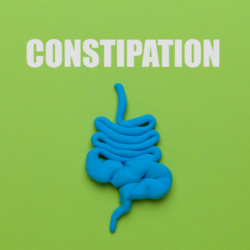Peptic ulcer is an erosion of the digestive mucosa in the stomach or the first part of the duodenum. The ulcer can have a diameter ranging from a few millimeters to several centimeters. It is a progressive and recurrent disease.
What is peptic ulcer ?
Peptic ulcer disease is a progressive wound with loss of substance. It appears after repeated attacks on the gastric mucosa, in particular by drugs (NSAIDs or non-steroidal anti-inflammatory drugs, corticosteroids, among others). The course is chronic and healing does not occur spontaneously (that is to say without medical, surgical or drug intervention).
Peptic ulcer is a loss of substance from the digestive lining, usually in the stomach (gastric ulcer) or in the first few centimeters of the duodenum (duodenal ulcer), passing through the mucous membrane. Almost all ulcers are caused by Helicobacter pylori infection or the use of NSAIDs.
Symptoms usually include heartburn-like pain, which is often relieved by food. The diagnosis is based in particular on endoscopy and examinations for Helicobacter pylori. Treatment includes suppressing acid secretion, eradicating H. pylori (if present), and not taking NSAIDs.
We therefore speak of peptic ulcer when this pathology simultaneously affects the stomach and the duodenum (first part of the small intestine), and duodenal ulcer when it is localized to the same duodenum. As for the pyloric ulcer, it is located at the level of the pylorus, that is to say at the exit of the stomach. Peptic ulcer disease can be called callosum when it is old and its edges are raised and sclerotic.
A little history
Before the discovery of Helicobacter pylori, ulcer disease was believed to result from stress causing a conflict between stomach acid and pepsin on the one hand, and protection offered by the gastric mucosal barrier on the other.
The discovery of H. pylori by Marshall and Warren in 1982 upset this conception and made peptic ulcer a predominantly infectious disease. Eradication of H. pylori with appropriate triple therapy is now the treatment of choice for ulcer disease.
Some naturopathic advice to limit peptic ulcer disorders
What foods to avoid ?
- French fries and fried foods
- Cooked oils and butter
- Spices (except cilantro)
- Mustard
- Offal, game and animal proteins in general (which excessively acidify the stomach environment) → You should know that the acid secretion of the stomach is reinforced by the absorption of too much animal protein. This leads to an overload of work for the pancreas, responsible for reducing this acidity. It is also better to avoid combining meats with carbohydrates. These are digested by amylase produced by saliva in the mouth. Unfortunately, amylase is not active in a strongly acidic environment. So the digestion of slow sugars will be a priori more difficult when they are associated with strong proteins.
- Fatty fish
- Preserves
- Sauerkraut
- Fermented cheeses
- Jams, creams, confectionery, pastry (especially industrial)
- Strong alcohols, frozen and carbonated drinks, coffee …
- Café au lait → Micelles are kinds of microscopic spheres which slow down the enzymatic activity to the point of blocking the stomach digestion phase and thus causing a strong acidity of the medium. Passing into the duodenum, these micelles interfere with the digestion of the chyme (bread included) and cause reflux, hepatic discomfort, small intestine disorders and intestinal putrefactions.
- Crustaceans, eggs
- Mushrooms
- Dried vegetables
- Fresh bread crumbs
- Sorrel
- Orange
- Raw onion
- Chocolate
What are the recommended foods ?
- Cooked or dried vegetables
- Cereals and starches (potato in particular)
- Boiled eggs
- Lean meats and fish (sea bass, hake, sea bream, lemon, pollack, sole, etc.)
- Raw butter and oils
- Fresh or unfermented cheeses
- Fresh fruits (banana, melon), fruit tarts …
- All products rich in omega 3
- Nuts
- Linseed
- Rapeseed oil (on raw vegetables)
More generally, it is necessary to opt for organic foods, free from phytosanitary and non-GMO products.
What natural remedies exist on the side of medicinal plants ?
Chronic diffuse superficial gastritis is an erosion of the gastric mucosa with rarefaction of gastric mucus and progressive epithelial destruction. They are most often complicated by the presence of a germ of the Campylobacter family, Helicobacter pylori.
We now know that the presence and the persistence of this germ in the stomach prevent a complete cure of gastritis. In conventional medicine, this germ is eradicated using antibiotics (a combination of amoxicillin and clarithromycin, or even metronidazole).
The plant extracts which seem to have the most effect on Helicobacter pylori are usually plants that are aromatic or contain an essential oil.
Shatavari :
Shatavari is a gastro-protective against gastric ulcer. It increases the local defense factors of the mucous membrane, the secretion of mucus and the mucous cells. It also has antioxidant activity.
Pastor’s purse :
This plant is indicated in gastric ulcers by stimulation of smooth musculature via vasoactive amines (choline, acetylcholine, histamine).
Hericium erinaceus :
This fungus is a gastro-protector against experimental gastric ulcer with strong anti-Helicobacter pylori activity.
Ceylon Cinnamon :
Cinnamon prevents stomach ulcers and has anti-Helicobacter pylori properties.
Clove essential oil :
This essential oil is gastro-protective by stimulating the synthesis of gastric mucus. It also has a preventive effect of gastric ulcer Helicobacter pylori.
Matricary:
Matricaria chamomile is antiulcer and gastro-protective against ulcers. It in fact generates protection against gastric lesions induced by ethanol and indomethacin and consequently inhibits the production of urease by Helicobacter pylori. It acts in inflammations and gastric ulcer, gastritis, intestinal spasms and thus decreases the symptoms of dyspepsia.
EPS Cranberry :
Cranberry inhibits the growth of Helicobacter pylori, in association with marjoram by probable inhibition of urease and inhibition of proline dehydrogenase at the level of the plasma membrane.
Dill :
Dill has an interesting gastro-protective and antisecretory effect. This plant also has moderate activity against Helicobacter pylori. It is a digestive antispasmodic.
EPS black radish :
The sulforaphen contained in black radish, is a detoxification activator (glutathione), as well as an antibacterial vis-à-vis Helicobacter pylori.
Olive leaves :
The olive leaf extract also seems to have a role in regulating the composition of the gastric flora by reducing the levels of H. pylori.
In summary
- Helicobacter pylori is a pathogenic bacterium which always causes an inflammatory reaction of the gastric mucosa
- Gastric inflammation or gastritis associated with H. pylori is asymptomatic in the majority of cases
- H. pylori is the cause of more than 70% of peptic ulcers and its eradication eliminates the ulcer disease
- Malt gastric small cell lymphoma may regress after eradication of H. pylori
- H. pylori gastritis can lead to intestinal atrophy and metaplasia, and ultimately gastric cancer in 1 in 100 cases
- Eradication of the bacteria helps stabilize precancerous lesions and prevent the onset of cancer
- The risk of cancer depends on the pathogenicity of the bacteria and the immune characteristics of the host
- Lactobacillus gasseri probiotics are believed to be of benefit in the eradication of Helicobacter pylori and inflammation of the gastric mucosa
In France, preventive eradication of the bacteria is recommended in particular in first-degree relatives of a subject with gastric cancer, patients who have had a partial gastrectomy for cancer and patients with marked atrophy.
Sources :
- Tytgat GN. Review article: practical management issues for the Helicobacter pylori-infected patients at risk of gastric cancer. .Aliment Pharmacol Ther. 1998
- Dominique Vialard – alternative santé – Ulcère, brûlures d’estomac, reflux : il y a des remèdes simples. 2014
- Hooi JKY, Lai WY, Ng WK, Suen MMY et al. Global Prevalence of Helicobacter pylori Infection: Systematic Review and Meta-Analysis. Gastroenterology. 2017
- Correa P. A human model of gastric carcinogenesis. Cancer Res. 1988
- Papatheodoridis GV, Sougioultzis S, Archimandritis AJ. Effects of Helicobacter pylori and nonsteroidal anti-inflammatory drugs on peptic ulcer disease: a systematic review. Clin Gastroenterol Hepatol. 2006





